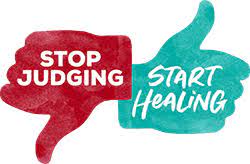
Gluten Free Diet: Tips for Those with a Gluten Allergy
Embracing a gluten-free lifestyle has become more than just a dietary choice; for many, it’s a necessity. As awareness of gluten allergies grows, understanding how to navigate this unique lifestyle is crucial. Whether you’re newly diagnosed or seeking to enhance your gluten-free journey, this guide offers insights, strategies, and resources to help you thrive without gluten.

Living with a gluten allergy can be challenging, as gluten is found in many common foods, making it essential to be vigilant about what you eat. Whether you have been recently diagnosed with a gluten allergy or have been living with one for a while, this post will provide you with practical tips and strategies to manage your condition successfully. By embracing this lifestyle and making informed choices, you can navigate the challenges of living with a gluten allergy while still enjoying delicious and nutritious meals.
Understand Gluten and its Sources
Educating yourself about gluten and its sources is the first step in managing a gluten allergy. Gluten is a protein found in wheat, barley, rye, and their derivatives. It can cause adverse reactions in individuals with celiac disease or non-celiac gluten sensitivity. It’s crucial to carefully read food labels and familiarize yourself with hidden sources of gluten to avoid accidental exposure.
Understanding gluten allergy
To effectively manage a gluten allergy, it is crucial to have a clear understanding of the condition. Celiac disease is an autoimmune disorder where the ingestion of gluten triggers an immune response that damages the small intestine. Non-celiac gluten sensitivity, on the other hand, does not involve an autoimmune response but can still cause uncomfortable symptoms such as bloating, diarrhea, and fatigue. It is important to consult with a healthcare professional to obtain an accurate diagnosis and determine the severity of your gluten allergy.
Once diagnosed, it is essential to educate yourself about the various names and forms of gluten. While wheat, barley, and rye are obvious sources of gluten, it can also be found in unexpected products such as sauces, dressings, and even medications. Familiarize yourself with food labels and look for ingredients like wheat flour, malt, or modified food starch. Additionally, be aware of cross-contamination risks when dining out or using shared kitchen utensils.
Identifying Hidden Sources of Gluten
Managing a gluten allergy requires careful scrutiny of food labels and awareness of hidden sources of gluten. Many processed foods contain gluten as a thickening agent or filler. It is important to read labels thoroughly and look for products that are certified gluten-free. Additionally, be cautious when consuming foods that are naturally gluten-free but may have been processed in facilities that also handle gluten-containing products. Cross-contamination can occur during manufacturing, so it is advisable to choose products with clear labeling regarding potential cross-contamination risks.
Furthermore, be mindful of non-food items that may contain gluten. Personal care products such as lip balms, toothpaste, and even certain medications can contain gluten-derived ingredients. Consider contacting manufacturers or using alternative gluten-free options to avoid any potential reactions.
Adopting a Gluten-Free Diet
The cornerstone of managing a gluten allergy is adopting a strict gluten-free diet. This involves eliminating all sources of gluten from your meals and snacks. Fortunately, there are now numerous gluten-free alternatives available in most grocery stores, making it easier to maintain a balanced diet.
Start by focusing on naturally gluten-free foods such as fruits, vegetables, lean meats, and fish. Incorporate whole grains like quinoa, rice, and corn into your diet as they are safe for those with a gluten allergy. However, be cautious when purchasing these grains as cross-contamination can occur during processing. Look for certified gluten-free options to ensure their safety.
When it comes to baking and cooking, there are many gluten-free flours and ingredients available. Experiment with alternatives like almond flour, coconut flour, or tapioca starch to create delicious gluten-free recipes. Additionally, there are numerous online resources and cookbooks dedicated to gluten-free cooking that can provide inspiration and guidance.

1.Choose Naturally Gluten-Free Foods
Fortunately, many whole foods are naturally gluten-free, such as fruits, vegetables, lean meats, fish, legumes, and most dairy products. Prioritize these foods in your diet to ensure you have a well-balanced and safe meal plan.
2. Use Gluten-Free Grains
Although wheat, barley, and rye are off-limits, there are plenty of gluten-free grain alternatives to enjoy. Quinoa, rice, millet, buckwheat, and oats (certified gluten-free) are excellent options to incorporate into your diet for added variety and nutrition.
3. Use Gluten-Free Products
As awareness of gluten allergies grows, the availability of gluten-free products has significantly increased. Look for gluten-free versions of your favorite foods, such as pasta, bread, and crackers, at grocery stores or specialty shops.

4. Read Labels Carefully
When shopping for packaged foods, always read the ingredient labels. Look out for hidden sources of gluten like malt, modified food starch, and certain food additives. Many companies now label products as “gluten-free” to help consumers make safer choices.
5. Be Mindful When Dining Out
Eating out with a gluten allergy requires extra caution. Inform restaurant staff about your allergy, and choose restaurants with gluten-free options or dedicated gluten-free menus. Ask questions about food preparation to avoid cross-contamination.
6. Create a Safe Kitchen Environment
If you share a kitchen with gluten-eating family members or roommates, it’s essential to create a safe environment to prevent cross-contamination. Use separate utensils, cutting boards, and cooking surfaces for gluten-free cooking.
7. Educate Friends and Family
Help your friends and family understand the seriousness of your gluten allergy and the importance of avoiding cross-contamination. Educating them about your dietary needs can make social gatherings and meals together safer and more enjoyable.
8. Be Prepared for Travel
Traveling with a gluten allergy requires careful planning. Research gluten-free dining options at your destination, pack gluten-free snacks for the journey, and consider carrying a “gluten-free” card in the local language to communicate your dietary restrictions effectively.

9. Seek Support
Managing a gluten allergy can be overwhelming at times, but seeking support can make the journey easier. Connecting with others who have gluten allergies can be valuable for sharing experiences, tips, and recipes. Look for local support groups or online communities where you can find encouragement and information to navigate your gluten-free journey. Support groups and online communities can also be invaluable resources. Connecting with others who share similar experiences can provide emotional support and practical advice. These communities often share tips on dining out, travel recommendations, and even gluten-free product reviews. Remember, you are not alone in this journey, and there are people who understand and can offer support. Consult with a registered dietitian who specializes in celiac disease or gluten allergies. They can provide personalized guidance on meal planning, label reading, and navigating social situations.
Living with a gluten allergy requires diligence, education, and a commitment to a gluten-free lifestyle. By understanding the condition, identifying hidden sources of gluten, adopting a gluten-free diet, and seeking support, individuals with a gluten allergy can effectively manage their condition and lead a healthy and fulfilling life. Remember to consult with healthcare professionals, stay informed about gluten-free options, and connect with others who share similar experiences. With the right strategies in place, managing a gluten allergy can become second nature. Managing a gluten allergy may initially seem overwhelming, but with the right knowledge and preparation, it becomes a manageable part of your life. Embrace a gluten-free lifestyle by making informed choices, exploring delicious alternatives, and creating a supportive network. By prioritizing your health and well-being, you can lead a fulfilling life while effectively managing your gluten allergy. Remember, with patience and dedication, you can still enjoy a wide variety of tasty and safe gluten-free meals.
Disclaimer: The information provided in this content is for general informational purposes only. It is not intended as medical or healthcare advice, diagnosis, or treatment. Always seek the advice of a qualified healthcare professional with any questions you may have regarding a medical condition or healthcare decisions.
















